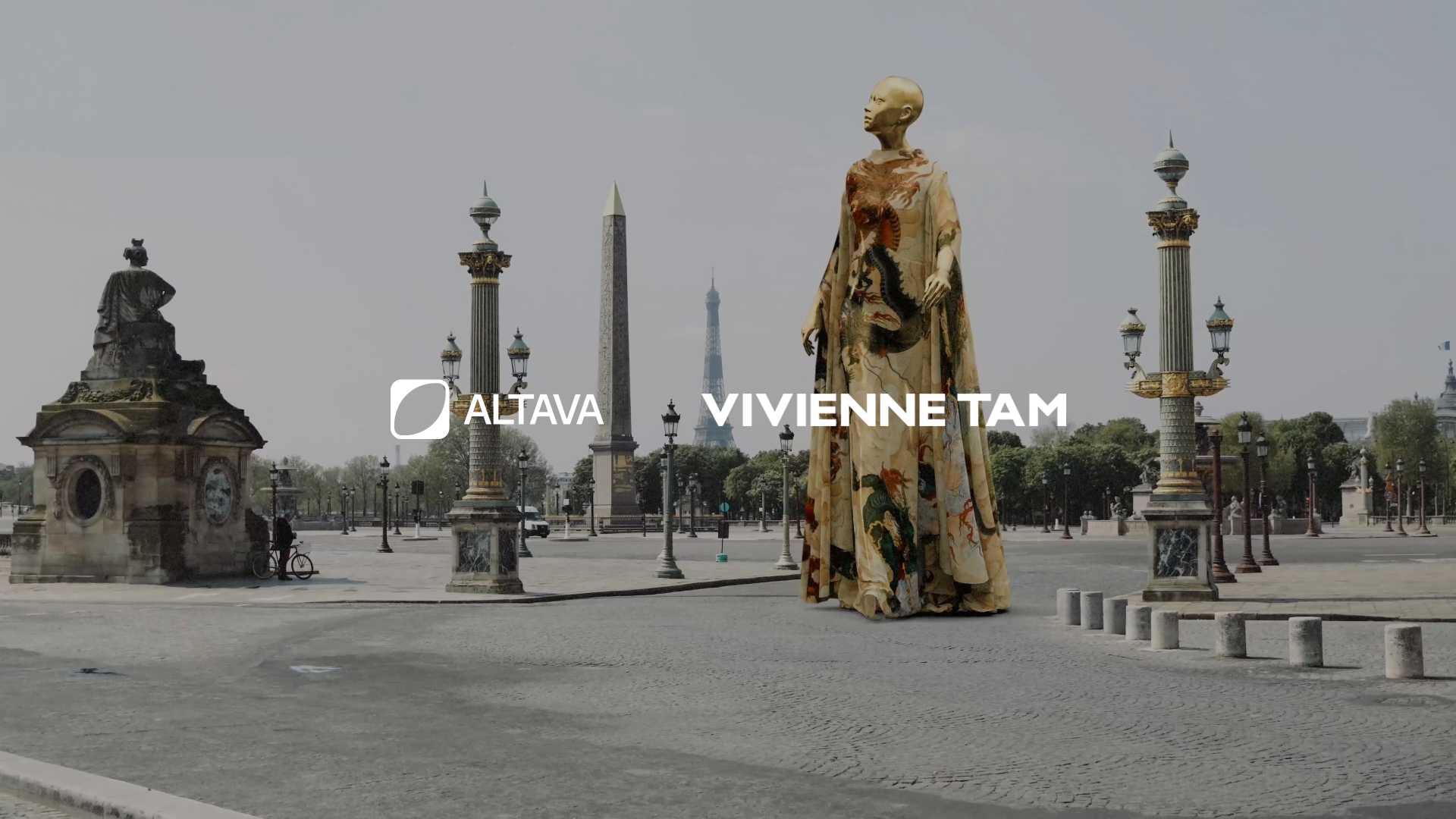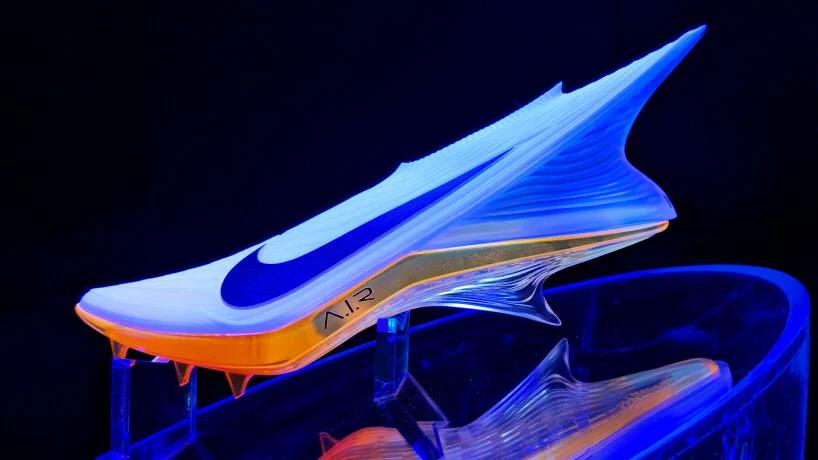Last week, Nike gathered a large number of athletes, media, investors and enthusiasts at its three-day gala in Paris, where the giant unveiled Project AIR, a platform that will deploy generative AI to design and print custom prototypes for athletes in minutes . . As part of the activation, Nike unveiled 13 AI-generated sneakers co-created with prominent sports figures, including footballer Kylian Mbappé.
Nike wasn't the only brand to harness the power of AI in design this week. Vivienne Tam, a vocal advocate of Web3 technologies, has announced a long-term strategic partnership with AI technology pioneer Altava to “explore the intersection of fashion and technology.”
AI-powered disruptor Mmerch is also putting its unique technology model into practice; this week, the brand released its inaugural collection of neocouture pieces to the world. As a proof of concept fall, will the newcomer's lofty ambitions bear fruit?

What happened: Chinese fashion designer and NYFW fixture Vivienne Tam has entered into a strategic partnership with AI fashion technology company Altava. To kick off the initiative, Altava developed an immersive CGI video that served as the backdrop for Tam's latest collection at the Palais de Tokyo.
Details of the wider partnership will be revealed later this year, with the collaboration promising to “unlock new avenues for creative expression”.
The verdict: Altava, a vertical AI startup created through the LVMH La Maison des Startups program, is cementing its reputation among luxury powerhouses. The company's partners to date include Balmain, Clarins, Fendi and Prada.
That's why this tie seems like a natural fit. An early fashion figure to champion technologies like NFT and AI, Tam frequently combines innovation with cultural heritage both on and off the runway. Through her collaboration with Altava, the designer has more possibilities to expand that vision and rejuvenate AI in design.

What happened: Hugo Boss has teamed up with virtual store developer Emperia to launch a new immersive shopping destination. Based on the real-life Boss House Bali, a villa designed by architect Alexis Dornier, the brand invited a select group of Hugo Boss Experience members, VIP clients, media and leading tastemakers from the Asia-Pacific region to explore. Now, a virtual counterpart of the village has opened to the public.
Visitors can browse and shop menswear, womenswear and fragrance collections, participate in gamified activities and book a physical stay at Boss House Bali.
The verdict: Hugo Boss's high-octane approach to the emerging tech landscape has continually made headlines this year. However, having a hand in so many Web3 projects requires careful effort to ensure that each activation lives up to expectations.
In this case, the brand's new retail-focused destination merges entertainment with commerce, a popular route for companies looking to expand their narrative while maintaining profits.
What happened: Move-to-earn app Stepn has partnered with Adidas on a collection of NFT sneakers. Launching on April 17, the collection consists of 1,000 pieces that feature Stepn's lightning bolt logo alongside Adidas' iconic three stripes. These NFT sneakers were available for purchase through Stepn's affiliated NFT marketplace, Mooar. Each pair is minted on the Solana blockchain, ensuring the uniqueness of its owner.
The verdict: The Genesis collection is the first in a series of co-branding activities between Stepn and Adidas. The two are set to release additional physical and digital items over the next year.
Web3 tennis startups like Stepn are leaning on industry conglomerates for financial backing and access to greater resources after a tumultuous few years for crypto and Web3.
“Aligned with its own Web3 roadmap, Adidas is investing heavily in the ecosystem's emerging creators and brands while introducing its loyal customers to nascent models like move-to-earn, a concept that leverages the wellness industry of 1.5 trillion dollars.

